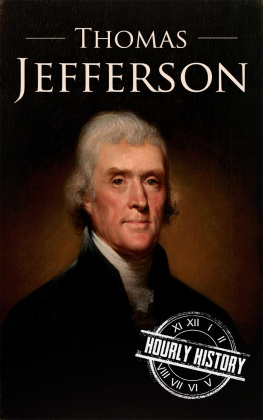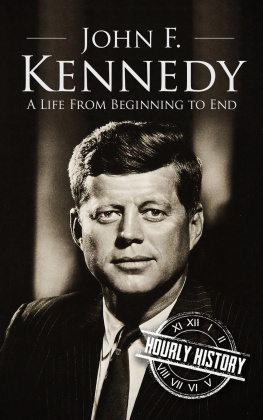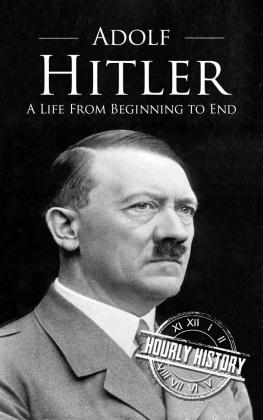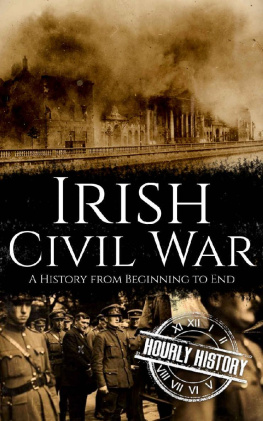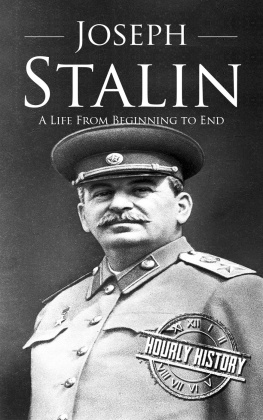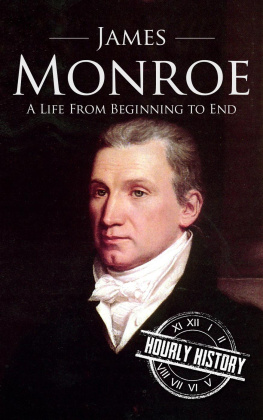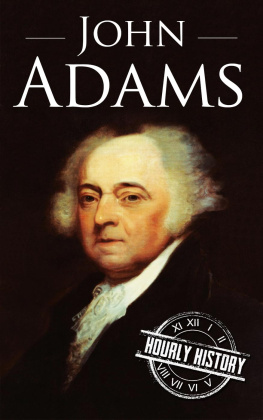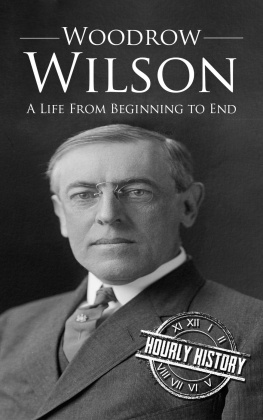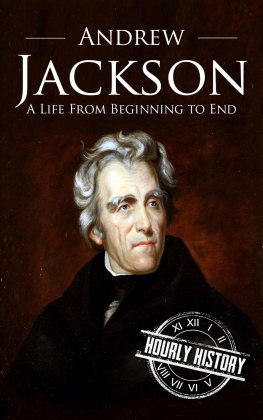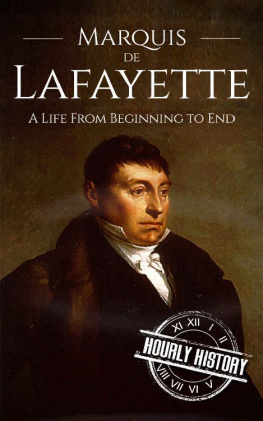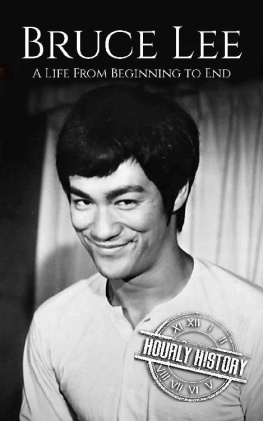His Life, His Loves, His Legacy
A t a White House dinner in 1962 honoring the Nobel Prize winners of the Western Hemisphere, President John Kennedy greeted them by saying: I want to tell you how welcome you are to the White House. I think this is the most extraordinary collection of talent, of human knowledge, that has ever been gathered together at the White House, with the possible exception of when Thomas Jefferson dined alone.
The laureates might have been a trifle nonplussed to hear themselves collectively compared to one man, but Thomas Jefferson left his imprint on his state of Virginia; his young country, the United States; France where he served as ambassador; and the world, where his opposition to tyranny and his advocacy of freedom have inspired generations to believe that the pursuit of happiness, as he wrote in his Declaration of Independence, is an unalienable right.
Jefferson himself opted for less opulent praise; the epitaph that he composed for his tombstone accommodated space for the dates of his birth and death, and listed the following accomplishments: author of the Declaration of Independence and the Statute of Virginia for Religious Freedom, and father of the University of Virginia. Between Kennedys description of the third president of the United States and Jeffersons own rendition of his accomplishments resides the enigma of an American philosopher who ardently believed in freedom yet owned slaves; a patriot who served his country with his talents and energies, but who was embroiled in the political machinations which rose to the surface as soon as the first president was in office; a human being who doubted the intellectual equality of African-Americans yet was engaged in a 38-year affair with a much younger female slave, with whom he fathered six children; a brilliant innovator who lived his life in debt; a man accustomed to the finer things that life could offer who espoused the simple, agrarian model for the new country he helped to found. Jefferson, the Founding Father, remains an unsolved mystery to the subsequent generations trying to fit together the pieces of the puzzle that comprise this complex and quintessential American.
The Son of Virginia
T o be born the son of a planter in 18th century Virginia was to have confidence that your life would be one of privilege. The Old Dominion had its own aristocracy and a lifestyle which appreciated and enjoyed the finer things of life, and came with a sense of entitlement for possessing them. That its comfort was sustained by the labor of enslaved Africans transported to the Americas was more often regarded as an economic reality rather than a moral dilemma; the anti-slavery movement existed, but slaves were owned both by Northern merchants and Southern plantation owners. The colony, which had developed from that first struggling settlement at Jamestown, was productive, populated and wealthy.
Virginia was the most prominent of the 13 American colonies that cherished their membership in the British Empire. A baby boy who was born on April 13, 1743, on Shadwell Plantation in Albemarle County would become one of the proud colonys, and then states, most celebrated sons. He would also be one of the architects of a move for independence that would throw off the British yoke and initiate an American political system destined to recalibrate traditional thought on social equality, governance, and that elusive concept known as liberty. His name was Thomas Jefferson.
Through his mother, Jane Randolph, Thomas Jefferson claimed kinship to her cousin Peyton Randolph, a respected member of the House of Burgesses who was recognized for his political astuteness. Jeffersons father, Peter, had made his own fortune in the colony as a planter and surveyor, and also commanded the local militia. Jefferson was apparently close to his father, but less so to his mother, who died in 1776; nor did he appear to have formed strong ties to his siblings. As an adult, Jefferson was introspective and moody, traits which may have made it difficult for him to form close bonds even with family members.
The Jeffersons had nine children; only five would live past the age of thirty, but this was not uncommon during that time period when medical science as we recognize it today was unimaginably primitive. When he was nine years old, Jeffersons family returned to Shadwell, leaving him to board with the Reverend William Douglas, an Anglican minister, so that he could begin his formal education. However, even at his youthful age, Jefferson was not impressed with his tutor, finding the cleric lacking in scholarship and an ability to teach.
In 1747, when Jefferson was 14 years old, his father Peter Jefferson died at the age of 49. This left his eldest son an inheritance of 7500 acres of land, 53 slaves, and 21 horses. His widow inherited Shadwell, and under the usual circumstances, Jeffersons new responsibilities would have brought his learning to an end. However, a friend of the family took on the task of managing the estate rather than requiring young Thomas to assume the obligations of manhood when he was only 14. Still, the loss of his father at an age when he still required guidance affected Jefferson.
However, he was able to take charge of certain aspects of his own future. Upon his fathers death, Jefferson found a new tutor, James Maury, also an Anglican minister, but one more attuned to teaching; from Maury, Jefferson learned natural history, science, and the classics, the latter a bedrock of 18th century education. Maury, in addition to his own eight children, had three other students in residence. Once of these, Dabney Carr, would become Jeffersons best friend and later his brother-in-law upon his marriage to Jeffersons favorite sister.
Jeffersons weekend visits to the family home at Shadwell were not joyful homecomings. He would often go on long horseback rides by himself, as his bent toward contemplative solitude grew. He became an expert rider during this time. Yet not all of his free time was spent out of doors. It was also at this time that Jefferson, a lover of music, learned to play the violin.
Jefferson at College
J effersons boarding at the home of his tutor, the Rev. Maury, continued until the age of 16. After that, he applied and was accepted to the College of William and Mary, where he studied science, mathematics, literature, philosophy, and rhetoric, and was exposed to the influence of the Enlightenment. Within two years he had earned his degree, but he stayed in Williamsburg to pursue a career in law, obtaining his legal education under the tutelage of George Wythe, whose pupils would also include future Supreme Court Justice John Marshall and Senator Henry Clay.
For the brilliant law student, the legal issues which the student explored provided a foundation for history, politics, and the ethical provenance of society. Jefferson was admitted to the bar in 1767. A legal career was not sedentary employment; the practice of law in the colonies at that time required riding the circuit to follow the meetings of the colonial court as it traveled to Virginias district seats.
Jeffersons return home meant that he was ready to assume the responsibilities of the family estate, which included the maintenance of its acreage and production as well as its slaves. His familiarity with the classical ideals of Roman and Greek thought meshed with the Virginian tradition of engagement in local political affairs, and in 1768 he was elected to the House of Burgesses. At this time in his life, Jefferson had the earmarks of a typical Virginian aristocrat who would be a credit to his colony and to the mother country, Great Britain.

